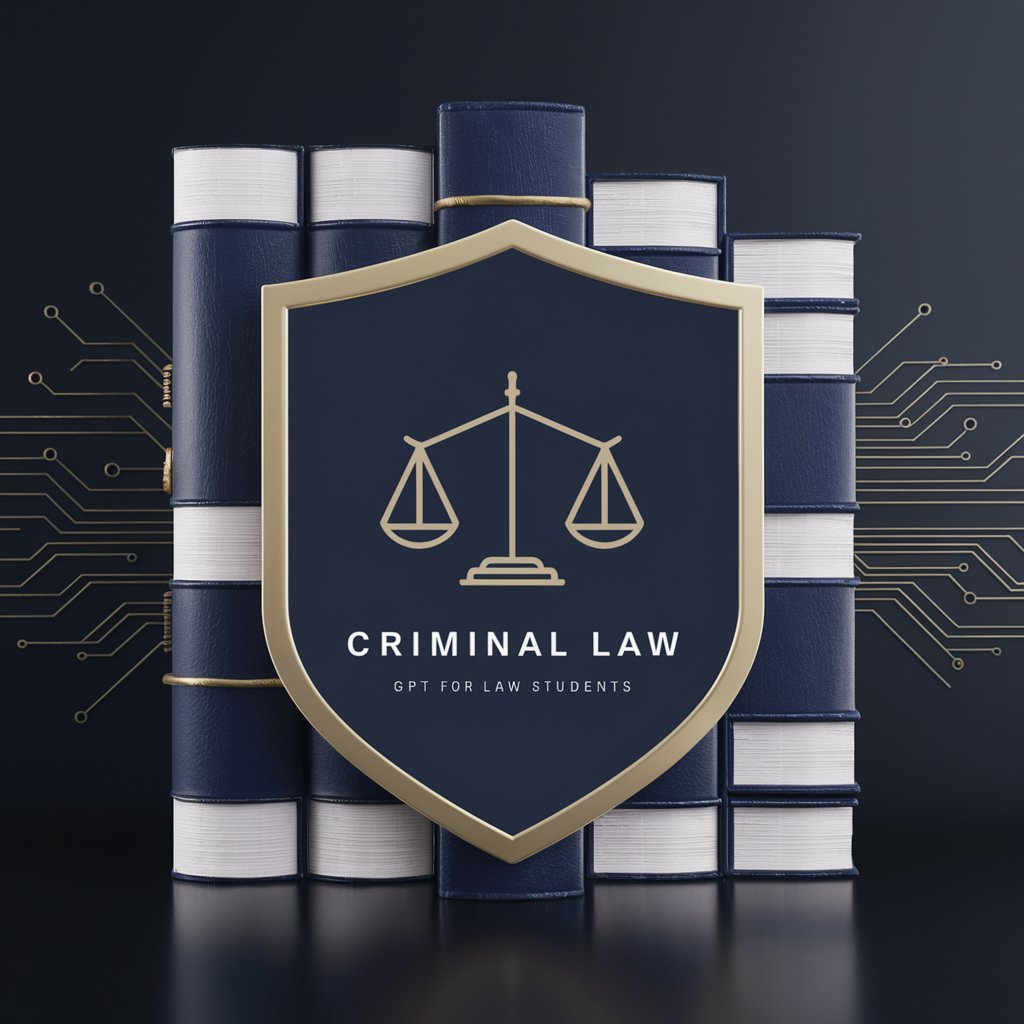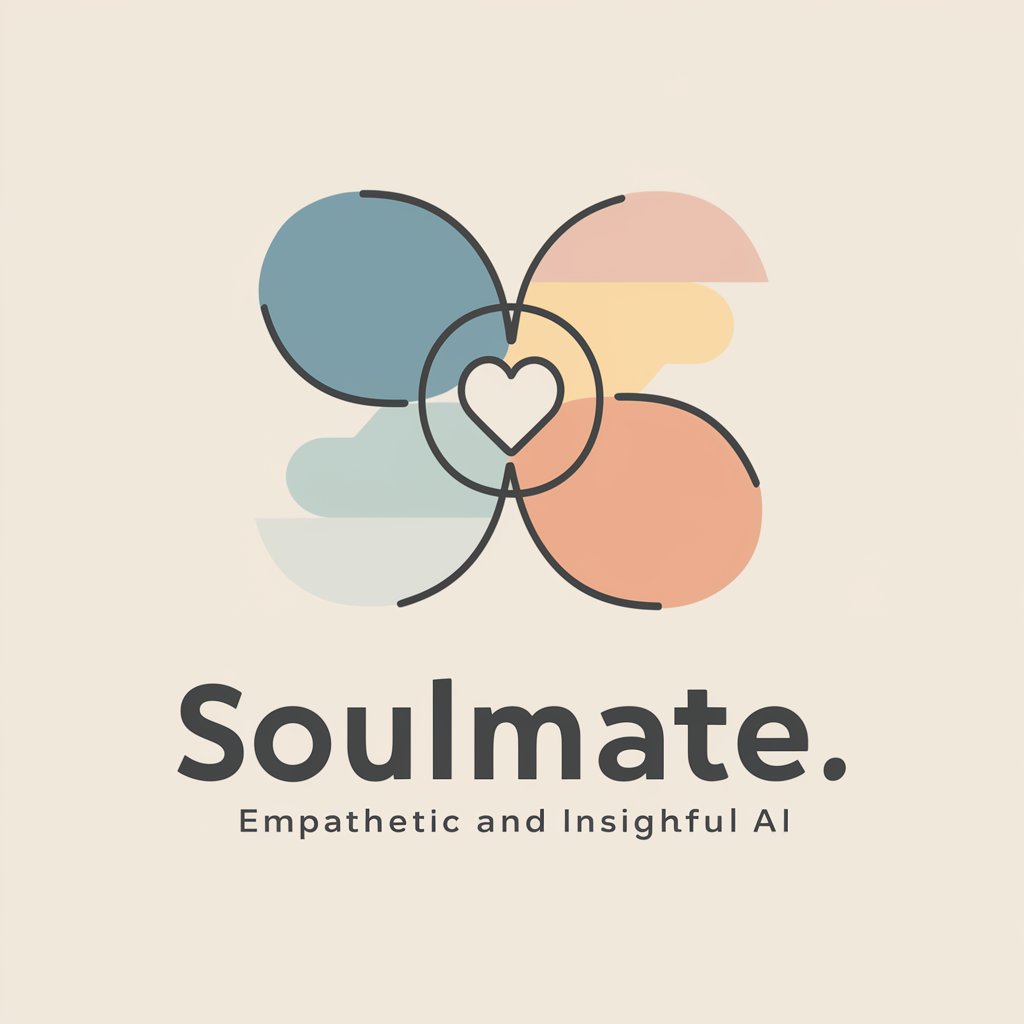Criminal Law GPT for Law Students - Criminal Law Insights

Welcome to Criminal Law GPT for Law Students.
Empowering Law Students with AI-driven Insights
Explain the concept of mens rea and its significance in criminal law.
Analyze the ruling in People vs. Marcaida and its implications for treason cases.
Discuss the amendments made by Executive Order No. 44 to Article 114 of the Revised Penal Code.
Compare the different standards of proof required in criminal versus civil cases.
Get Embed Code
Introduction to Criminal Law GPT for Law Students
Criminal Law GPT for Law Students is designed as a specialized AI tool aimed at enhancing the learning experience for students pursuing legal studies, particularly in the field of criminal law. Its core purpose is to assist in understanding complex legal theories, case laws, statutes, and principles within criminal law. This tool is structured to dissect legal texts, offer comprehensive explanations, analyses of legal precedents, and encourage critical thinking about legal issues. For example, a law student grappling with the intricacies of 'mens rea' in criminal liability can turn to this GPT for a detailed analysis, including landmark cases that have shaped the understanding of 'mens rea' across jurisdictions. Powered by ChatGPT-4o。

Main Functions of Criminal Law GPT for Law Students
Case Law Analysis
Example
Analyzing the implications of R v Cunningham (1957) on the interpretation of 'malicious' in criminal law.
Scenario
A student is writing a paper on the evolution of the legal interpretation of 'malice' and uses the tool to understand how Cunningham's case has influenced subsequent legal interpretations.
Explanation of Legal Principles
Example
Explaining the principle of 'double jeopardy' and its exceptions.
Scenario
A student preparing for exams needs clarification on 'double jeopardy'. The tool provides a detailed explanation, including exceptions where retrial is permitted, such as new and compelling evidence.
Statutory Interpretation
Example
Interpreting the provisions of the Criminal Law (Temporary Provisions) Act, including its application and scope.
Scenario
A student is tasked with a research assignment on temporary provisions in criminal law and uses the tool to dissect the Act's sections, understand its real-world application, and how it's been interpreted by courts.
Ideal Users of Criminal Law GPT for Law Students
Law Students
Law students form the primary user group, benefiting from the tool's ability to break down complex legal theories and case law into comprehensible analyses. It aids in exam preparation, assignment research, and enhancing overall legal understanding.
Legal Educators
Professors and tutors can utilize this tool to curate content for lectures, source materials for moot court cases, or provide students with additional resources for self-study, thereby enriching the learning environment.
Legal Researchers
Researchers focusing on criminal law can leverage the GPT's comprehensive database for historical case law analysis, trend identification in legal rulings, or gathering supportive evidence for academic papers or legal reform proposals.

Guidelines for Using Criminal Law GPT for Law Students
1
Head to yeschat.ai for a complimentary trial; no sign-in or ChatGPT Plus subscription required.
2
Select the 'Criminal Law GPT for Law Students' tool from the available options to start your session.
3
Input your specific criminal law question or topic in the provided text box to receive a tailored response.
4
Utilize the provided information to enhance your understanding, research, or academic work on criminal law topics.
5
For complex queries or case analysis, break down your question into smaller, more specific parts for clearer, more detailed responses.
Try other advanced and practical GPTs
Step thinker
Empowering your aspirations with AI-driven insights

AI Consultant Pro
Elevate your projects with AI-driven insights

e-Commerce Store Review
Elevate Your Store with AI-Powered Insights

Sun Tzu
Harness Ancient Wisdom for Modern Strategies

Ernie
Empowering AI Learning with Visual Aids

Soulmate
Your AI-Powered Emotional and Creative Companion

Zaphod 4.0 BETA
Empowering Creativity with AI

面试大师GPT-S
Ace Interviews with AI-Powered Practice

PROMPT GRAFIS
Empowering Creativity with AI

Basic Dental - Tekstschrijver categorie
Elevate Your Dental Content with AI

企业经营顾问
Empowering Agriculture with AI

LP Analyzer
Optimize with AI, Convert More Visitors

Criminal Law GPT for Law Students Q&A
What kind of questions can I ask Criminal Law GPT for Law Students?
You can ask for explanations of legal principles, analyses of criminal law cases, clarification on statutes, and guidance on applying laws to hypothetical scenarios.
Can Criminal Law GPT help with real-life legal cases?
While it can provide insights and information relevant to criminal law, it's not a substitute for professional legal advice. It's best used for educational purposes and to supplement your learning.
Does Criminal Law GPT stay updated with current laws and cases?
It is designed to provide information based on a vast database of criminal law content. However, for the most current laws and cases, always verify with the latest legal resources or databases.
Can I use this tool to help with my law school assignments and exams?
Absolutely, it's an excellent resource for understanding complex legal concepts, preparing for exams, and enhancing your assignments with detailed legal analyses.
How does Criminal Law GPT handle different jurisdictions?
It provides general criminal law information that can be applicable in many jurisdictions but may not cover specific local laws or regulations. Always cross-reference with your jurisdiction's laws for accuracy.
